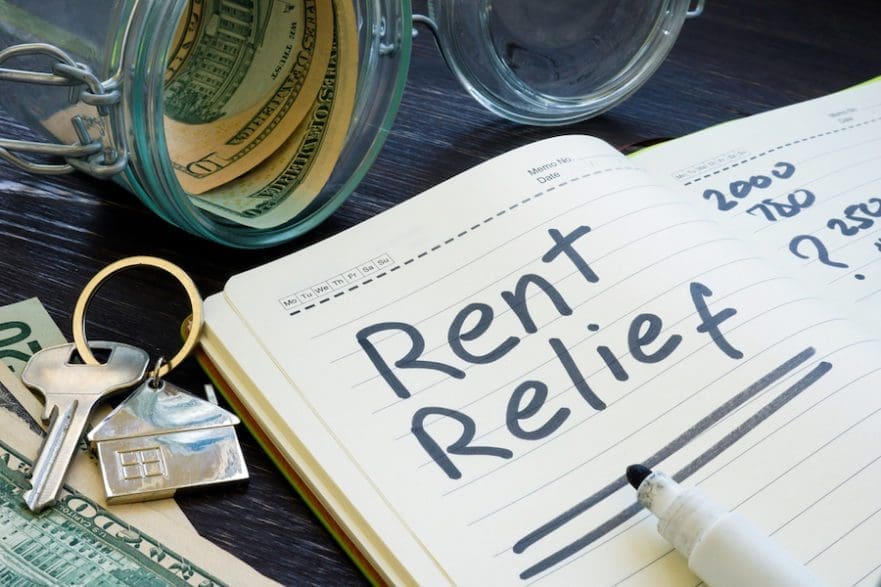It wasn’t long ago that researchers at the University of Southern California, UC Berkeley, and UCLA released key studies that found rent control is an effective tool to keep people housed and to stabilize the housing affordability crisis. Big Real Estate and other rent control opponents have tried to ignore the findings of these academic heavyweights, but the reports were clear: rent control works. With local rent control movements popping up all over the country, it’s a good time to again showcase these studies.
In 2018, USC released a study called “Rent Matters: What Are the Impacts of Rent Stabilization Measures?” It was co-authored by Manuel Pastor, a highly regarded professor at USC, and commissioned by the California Community Foundation. The study continues to be relevant and important – St. Paul housing justice activists cited it during their successful campaign to pass a pro-rent control ballot measure in 2021.
The key takeaways from “Rent Matters” directly push back against old arguments made by the real estate industry and other opponents of rent control. First, Pastor and co-authors Vanessa Carter and Maya Abood found that rent regulations “do not necessarily increase the rent of non-regulated units and may actually keep rent more affordable for all.” Second, rent regulations have “minimal impact on new construction.” Third, “rent stabilization increases housing stability, which has important health and educational attainment benefits.” Fourth, “there is no conclusive evidence about the impacts on ‘mom and pop’ landlords.” Fifth, “rent regulations may deter gentrification.”
These are huge findings. Unlike the outdated claims made by anti-rent control forces, Pastor and his colleagues show that rent control or rent stabilization will help the people who need it most: poor and working-class residents, communities of color, and middle-class residents, all of whom are getting slammed the hardest by gentrification and the housing affordability crisis. In addition, a study by Zillow, the real estate website, found that in cities where people spend more than 32 percent of their take-home pay on rent, a spike in homelessness will follow. Rent regulations will address that, preventing people from falling into homelessness.
Researchers Nicole Montojo and Stephen Barton, who released a study through UC Berkeley, also found that “while other proposed remedies to the housing crisis may take years before they impact housing costs, only expanding rent control can offer immediate relief to millions of people in danger of being forced from their homes.”
Montojo and Barton’s report, titled “Opening the Door for Rent Control: Toward a Comprehensive Approach to Protecting California’s Renters,” was full of important findings. They noted that rent control “can stabilize rents for existing tenants, improve affordability for tenants in the future, and preserve the existing affordability of housing that may otherwise become unaffordable.” And the researchers found that claims that “rent control has negative effects on development of new housing are generally not supported by research” and that “rent control can provide a timely solution [to a housing affordability crisis] that the market will not.”
In a statement, Barton further pointed out: “When the housing market is as dysfunctional as it is in many parts of California, tenants are effectively subsidizing landlords with rent payments above what a fully competitive market would allow landlords to charge.”
That tenant subsidy has paid for extravagant lifestyles for many of California’s largest corporate landlords, who spent tens of millions to kill rent control ballot measures in the state. Billionaire Sam Zell, for example, owns posh homes in Chicago, Sun Valley, New York, and Malibu, collects motorcycles, and flies around the world in a private jet. Another billionaire corporate landlord, Stephen Schwarzman, owns mansions in Saint-Tropez, Jamaica, East Hampton, and Palm Beach and throws lavish parties for celebrities and high-society friends.
At the same time, as sky-high rents force more people into the streets, nearly 1,500 homeless people have died in the Los Angeles area between 2020 and 2021.
Alisa Belinkoff Katz, a researcher at the UCLA Luskin Center for History and Policy, examined rent control and housing affordability crisis in L.A. going back to the 1940s. The UCLA study is titled “People Are Simply Unable to Pay the Rent: What History Tells Us About Rent Control in Los Angeles.”
During World War II, Katz wrote, “federal rent control in Los Angeles successfully froze rents and narrowed the scope of evictions until housing construction expanded the city’s housing supply.” Put another way, rent control kept people housed.
Then in the late 1970s, as inflation rose and rents spiked, L.A.’s rent stabilization ordinance “ended dramatic rent increases for incumbent tenants by limiting the rate by which rents could be increased.” Once again, people weren’t forced out of their homes.
These days, Katz wrote, the lack of affordable housing, skyrocketing rents, and declining incomes “have made housing unaffordable for almost half of middle-income renters and nearly all those who are poor. This in turn has exacerbated the epidemic of homelessness on our streets.”
Katz concluded that California elected officials must take “action to ensure the availability and affordability of rental housing for all income levels… and [allow] local governments to reassert themselves in stabilizing rents.” She recommended the repeal or reform of statewide rent control restrictions and the expansion of rent regulations such as rent control or rent stabilization.
Katz’s historical perspective is crucial: it shows that solid rent control policies have succeeded, for decades, in keeping people housed and preventing them from falling into homelessness.
Big Real Estate will keep shelling out millions to confuse the public with their anti-rent control arguments, and self-appointed “housing experts” such as YIMBYs will continue to push for trickle-down housing solutions that don’t help the people who need it most. But these studies by USC, UC Berkeley, and UCLA send a clear message: rent control will quickly stabilize a housing affordability crisis, prevent homelessness, and, in fact, save lives. Those are the stone-cold facts. They can no longer be ignored.

